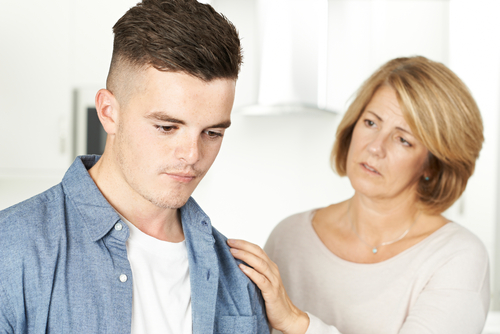
When we have loved ones in recovery, we can experience unique challenges that can be difficult and overwhelming to understand let alone live with. This can be especially true for those of us who have parents in recovery. We’re dealing with different family dynamics and alternating family roles that can disturb the equilibrium of the family, further worsening the negative impacts that addiction can have on all of us as a family unit. We’re undergoing huge transitions individually and as a collective. We can struggle to figure out how to best support our parents, especially if we ourselves are dealing with our own addictions and mental health issues.
Alternating Family Roles
When a parent is in recovery, all of the typical and usual family roles and dynamics are called into question. Many of us are not used to being the caretakers for our parents. We’re not accustomed to having to make important decisions on their behalf, regarding their health, their finances, their living situations, and their treatment. We might find ourselves being forced to check them into treatment involuntarily. We might have to take care of their homes and finances in their place. We might be their medical proxies, having to make crucial decisions about their health care. This can be a huge challenge for us, to suddenly be caring for our parents when we’re used to them caring for us. It can be destabilizing, confusing and emotionally upsetting for us. We’re now seeing our parents in a whole new light. We may not be used to seeing them in a vulnerable or fragile position. We might be used to them being in charge, managing everything for the family. Now they are dependent on us for many of their needs. They are leaning on us in their recovery. They are looking to us to help them navigate the huge life hurdles that come with addiction and sobriety.
Dynamics of Authority
Sometimes the family dynamics of authority come into play. Our parents might have a very hard time deferring to us. They might not be willing to relinquish their authority and control. They might want to continue to be the ones to control and manage the family unit, to have the most authority, to be in charge. It might be uncomfortable and unsettling for them to suddenly have their authority and control stripped away from them. In addition, suffering from addiction chips away at our autonomy and independence, which can be especially troubling for our parents. They don’t want to have to depend on anyone, let alone their children.
Parental Concern
For our parents, one of the hardest parts of struggling with addiction is the concern they feel for how we as their children are being impacted. They don’t want us to see them this way, compromised, out of control, needy and dependent. They want to shield us from seeing their suffering. They don’t want us to witness their hitting rock bottom and the desperation it can entail. As our parents, they tend to be protective of us. They can feel that they’re letting us down by needing us, by depending on us, by leaning on us for support. They can feel incredibly disappointed in themselves for putting us through this, for causing us pain, and for even being in this situation. They might hate themselves for being addicts and for exposing us to their addictions. They might feel as though they’ve failed us as parents. They can feel a deep sense of shame, worthlessness, and inadequacy for not being able to recover on their own and for needing us to help them.
Motivation to Recover
When our parents are in recovery, we are sometimes their greatest sources of motivation to get sober. They look at us and see the most important reason to get well. Not only do they not want us to suffer, they don’t want us to continue in their footsteps. They don’t want us to inherit their addictions or absorb their harmful energy of addiction and dependence. They don’t want us to initiate the habits and start the patterns that might turn into full-blown addictions in our own lives. As our parents, what they want most is for us to be well, to be at peace, and to be healthy. Their greatest fear is that we will suffer, and when we’re being made to suffer because of their addictions, the shame can feel debilitating. This can be the catalyst for our parents to finally quit their addictions and to recover successfully, because the pain of letting us down as our parents can be too overwhelming to bear.
Life Transitions
This unique experience of having parents in recovery can be a huge transition for us. We might find ourselves having to totally overhaul our routines and lifestyles to accommodate this transition. Our parents might have to move in with us, or we might have to relocate to live with them and care for them if they can’t move. We might become their main source of financial support. We might find ourselves taking on all of the duties of caring for them if they’re ill. We might be the ones trying to motivate them to enter treatment if they’re feeling resistant to it. We might become the ones doing the pleading and convincing, some of the many duties usually reserved for parents when we’re young children. This can be a major life transition not only for us but also for our parents, which can add to the many challenges we’re all facing in living with their addictions.
The caring, compassionate staff of The Guest House is here to support you as you start your journey to recovery and healing.
Call 855-483-7800 today for more information.
theguesthouseocala.com
3230 Northeast 55th Avenue Silver Springs, FL 34488